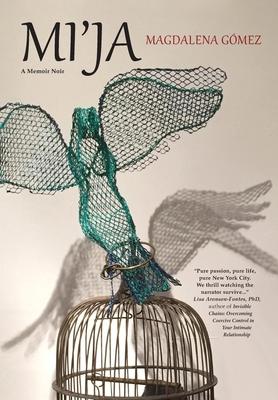"The language dances.
The stories sing.
My heart broke and was mended, over and over again.
Magdalena, the wise elder, offers healing to Magdalena, the wiser child, and in turn opens a path, brimming with love and compassion, to heal all our child selves. Mij is for those who have endured much suffering at the hands of those who couldn't or wouldn't love us in the ways we needed and, more importantly, in the ways we deserved to be loved. Her stories are hers, particular in time and place: various parts of New York City in the 1950s, 60s, and 70s. The stories are also universal in the best ways; they travel the world, they speak many languages, they weave connections, and they show us how empathy, courage, and creativity are deep wells from which we all can draw as we soldier through this maddening world. Gracas a Magdalena por tus palabras y tu corazn tiernisimo."
-Priscilla Maria Page, MFA, PhD; University of Massachusetts,
Amherst Multicultural Theater Certificate Director, Dramaturgy Faculty
"Gmez unflinchingly shares how adult physical and verbal violence warps a child's ability to love and causes psychological wounds with no statute of limitations. Her lyric grace renders so many painful moments into riveting vignettes and unforgettable imagery. Gmez's skillful crafting of this memoir immediately earns its rightful place alongside contemporary memoirs such as Grace Talusan's The Body Papers, Kiese Laymon's Heavy, and Carmen Maria Machado's In the Dream House."-Mara Luisa Arroyo Cruzado, MFA, MAmultilingual Boricua poet Pushcart Prize nominee intersectional feminist educator of color inaugural Poet Laureate (2014-2016) of Springfield, MA; author of Gathering Words: recogiendo palabras and Destierro Means More than Exile
"Don't miss the numerous creative and syncopated renderings and re-mixings of the Boricua Spanglish of the time, a treasure trove of New York Puerto Rican history reanimated by the ear and flow only a poet and performer like Gmez could bring...Gmez has long been a bridge between the foundational Nuyorican poets of the 1960s and 1970s and younger generations of poets and performers. Mi'ja is another kind of bridge: her "memoir noir" combines poems and dream records with vivid yet often raw and painful prose remembrances..."-Urayon NoelAssociate Professor of English, Spanish, & Portuguese Director of Graduate Studies, Department of Spanish & Portuguese at NYU; Latinx Project Faculty Board Member
